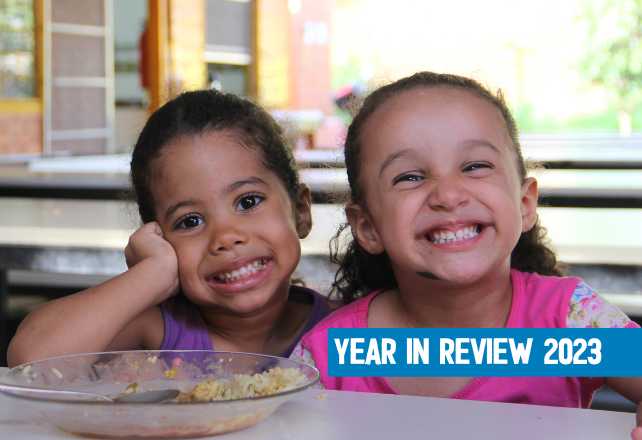 A new humanitarian emergency with the conflict in the Gaza Strip and the continuation of other emergencies such as the war in Ukraine have made the work of the United Nations World Food Programme (WFP) in 2023 even more complex. Despite this, humanitarian aid work to save lives and to continue changing lives through durable solutions to fight hunger has continued. Throughout the year, the WFP Centre of Excellence Against Hunger in Brazil expanded its work to support countries in several areas, such as school feeding, nutrition, and family farming, created new partnerships, and expanded projects that were already underway.
A new humanitarian emergency with the conflict in the Gaza Strip and the continuation of other emergencies such as the war in Ukraine have made the work of the United Nations World Food Programme (WFP) in 2023 even more complex. Despite this, humanitarian aid work to save lives and to continue changing lives through durable solutions to fight hunger has continued. Throughout the year, the WFP Centre of Excellence Against Hunger in Brazil expanded its work to support countries in several areas, such as school feeding, nutrition, and family farming, created new partnerships, and expanded projects that were already underway.
The Centre of Excellence began to act more directly supporting the Brazilian government within the scope of the Food Systems Summit and the Global School Feeding Coalition. The WFP plays the role of secretariat of the Coalition and, in October, Brazil was confirmed as co-presidency of the group, alongside France and Finland.
Another important highlight of the year was the launch of the book “Brazil of School Feeding: a tour of the best recipes”, which brings together the winners of the last editions of the reality show “Merendeiras do Brasil”. The book, which also features testimonies from cooks and nutritionists involved in the competitions, presents an overview of school feeding in the country and portrays how Brazil has inspired other countries.
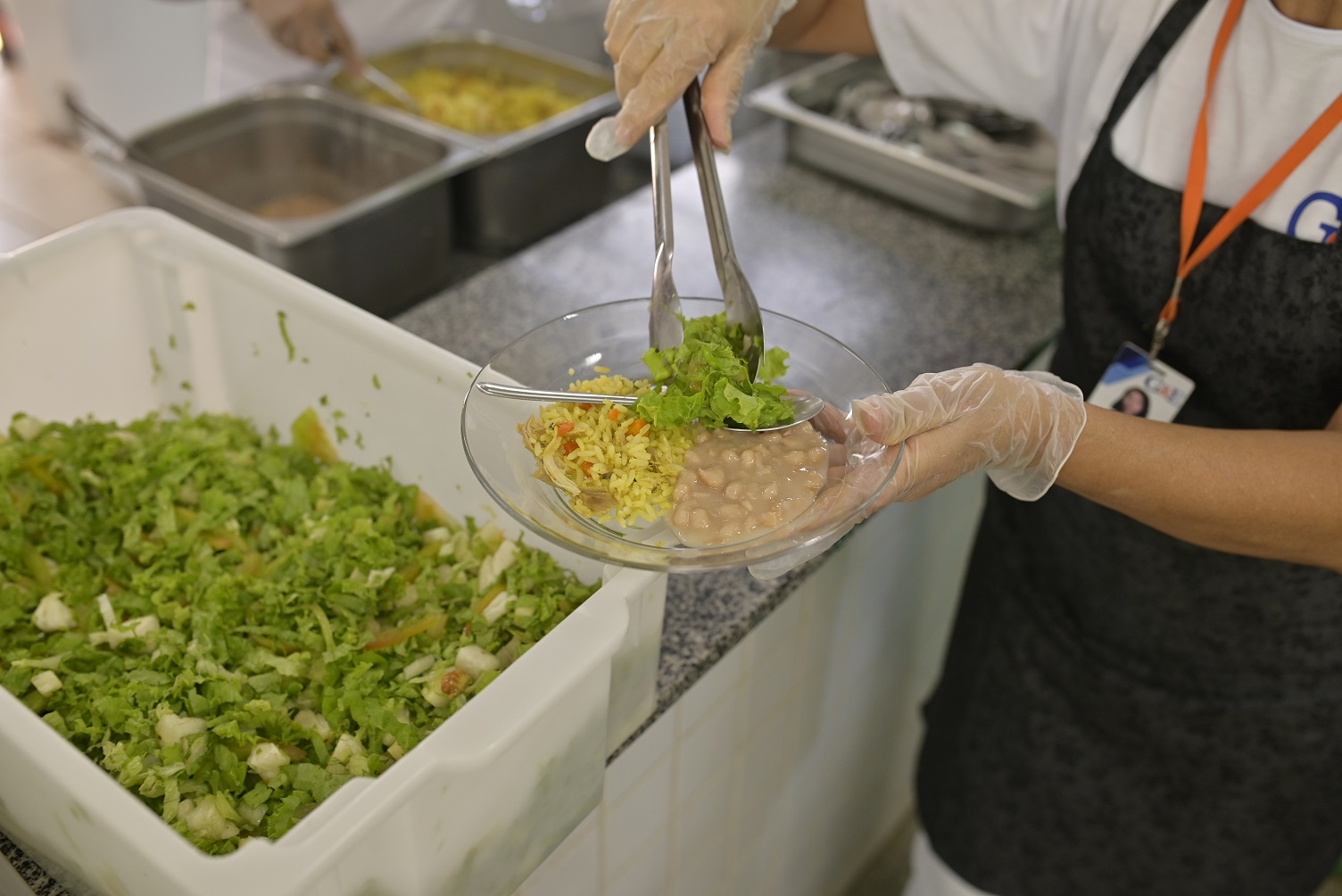
Cooperation in school feeding
In 2023, the Centre of Excellence, in partnership with the Republic of Congo, the United Nations Office for South-South Cooperation (UNOSSC), with funding from the IBSA Fund, launched a new project to improve the food security and nutritional status of family farmers, especially women and schoolchildren in Congo. The partnership with Togo, which has already collaborated with the Center of Excellence and is now starting a new phase, has also been resumed.
Technical support to Angola was marked by meetings, the country’s participation in the “Virtual Visit: Brazil” and a mission to Brazil at the end of the year. Representatives of the Namibian government and WFP in the country also participated in the Virtual Visit to learn about the school feeding system of the two countries and promote exchanges, through South-South Cooperation, on how this public policy can help in the fight against hunger and malnutrition among school-age children.
In addition, a delegation from the Republic of Congo participated in a mission to Brazil to learn about the Brazilian experience in school feeding, especially in the purchase of food from family farming. Then, a technical team from the Centre of Excellence went to the country to continue exchanging information on the Brazilian institutional and legal frameworks and the mechanisms for managing school feeding in Brazil, their links with family farming, the role of civil society and multisectoral arrangements in the success of food and nutrition security programmee.
The unit also organized, together with Brazilian partners, a seminar so that Portuguese-speaking countries could evaluate good practices and share examples of national initiatives for monitoring and evaluating school feeding programmes. The technical team of the Centre of Excellence also participated in meetings with the Philippines, Armenia and Nicaragua.
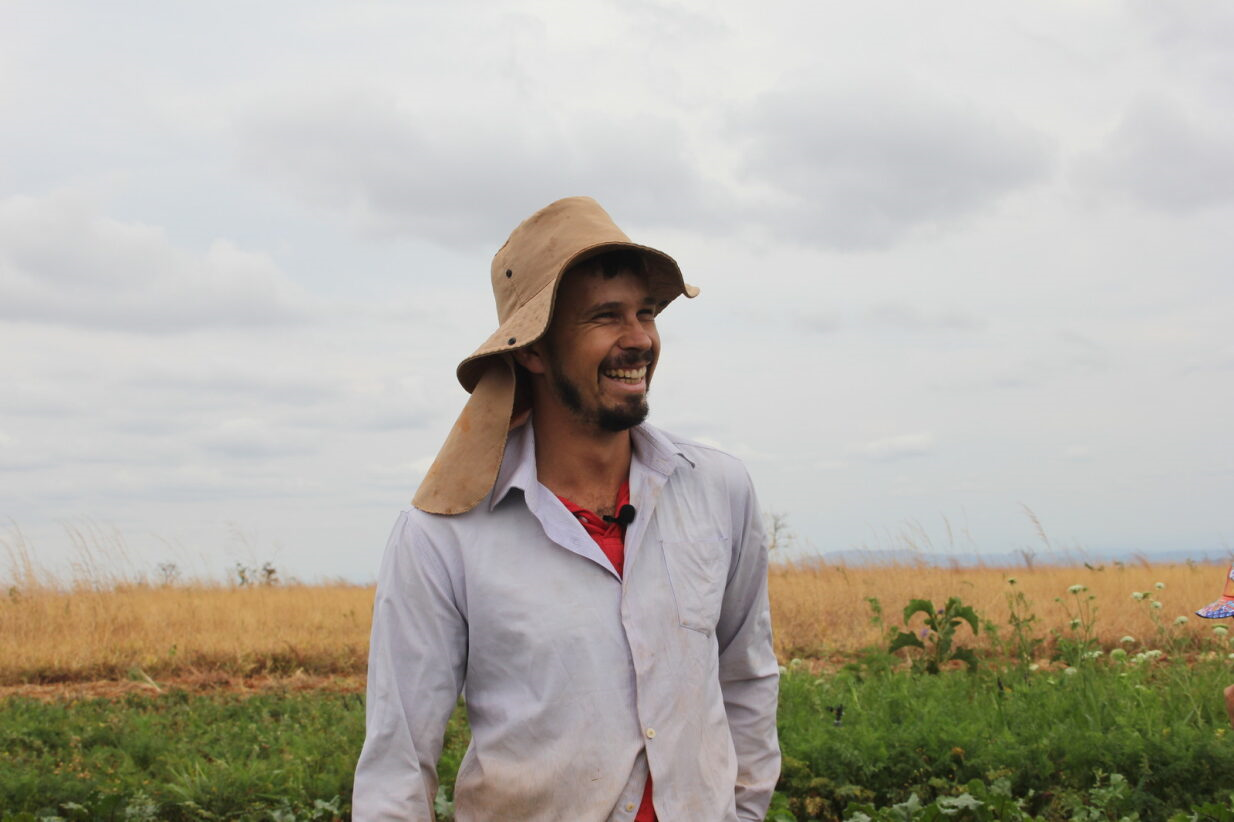
Agriculture & Nutrition
In Benin, the Beyond Cotton project team carried out training missions on sustainable agriculture, food security and nutrition. In Tanzania, the project has made important advances, such as the improvement in the quality of life and classroom time through the installation of cisterns. Project teams also offered courses on the management of cotton and associated food crops, the manufacture of handmade looms for the processing of cotton fiber, and workshops on food waste management.
In Mozambique, the Beyond Cotton project team carried out technical and coordination missions, as well as culinary workshops and training on post-harvest losses. On the other hand, the nutritionist professors of the Brazilian cooperating institutions who work in the nutrition activities of the project participated in a first joint technical meeting. Other activities included a visit to the Agronomy Tutorial Education Programme of the University of Brasília to learn about the experimental area of agroforestry at the Água Limpa Farm.
On the other hand, the Nurture the Future project team participated in discussions and supported the formulation, together with managers, workers and users of the Brazilian National Health System of proposals for the consolidation and strengthening of nutrition and healthy eating during the National Nutrition Conference. In addition, project teams participated in a technical meeting with a delegation from Cuba to exchange experiences on strategies and actions for the local purchase of food from family farming, nutrition, and food and nutrition education in Brasilia.
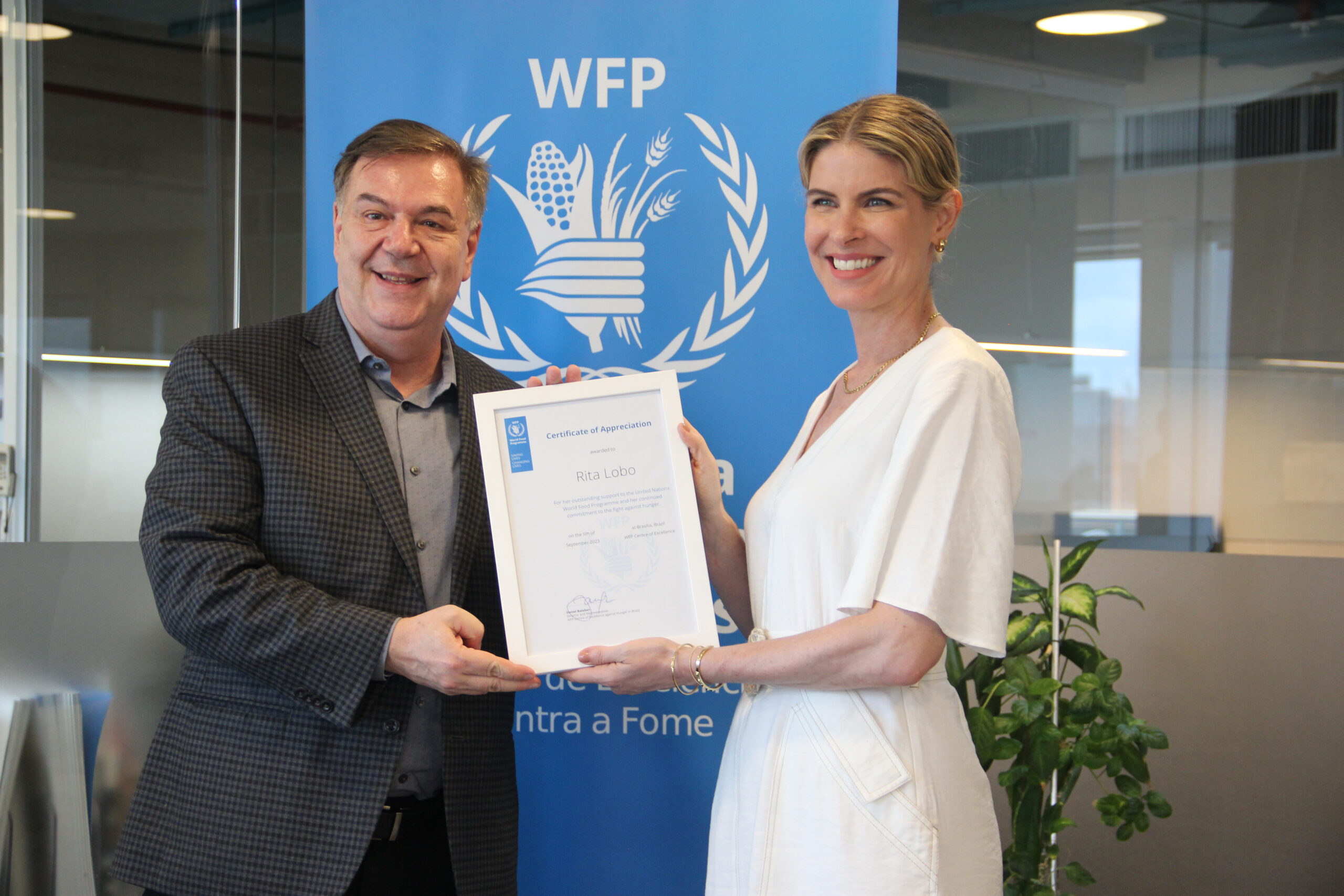
Visibility, advocacy and partnerships
An important milestone for communication and advocacy activities in 2023 was the announcement of the designation of Rita Lobo as an Official Supporter of the World Food Programme to help amplify debates on adequate and healthy diets, how to reduce food waste and avoid the consumption of ultra-processed foods. Another significant announcement was the new partnership with the Associação Fome de Tudo to carry out campaigns in support of WFP-supported school feeding programs in Latin America and the Caribbean.
To mark World Food Day, celebrated every year on 16 October, the WFP Centre of Excellence in Brazil, the UN Food and Agriculture Organization (FAO), the Inter-American Institute for Cooperation on Agriculture (IICA) and the International Fund for Agricultural Development (IFAD) have joined forces with the Government of Bahia and the Bahia Sem Fome programme for various activities in Salvador.
During the event, the WFP Centre of Excellence and the Government of Bahia signed a memorandum of understanding to support the state in training managers and people involved with food and nutrition security and to implement policies to combat hunger and develop research on the subject in the state.
In 2023, the Centre of Excellence also supported a regional event called “The Power of Multisectoral Approaches to Human Capital Development,” promoted by WFP reginal office in Panama and the Inter-American Development Bank (IDB). The event took place in Brasilia and brought together representatives from more than 20 countries, international organizations and financial institutions.
Also within the scope of partnerships, the Centre of Excellence held technical meetings with the labour Prosecutor’s Office and supported WFP’s global procurement unit to promote, together with the Brazilian Trade and Investment Promotion Agency (ApexBrasil), a seminar to present opportunities to Brazilian companies. The Centre also supported the holding of a side event during the 51st meeting of the Committee on World Food Security (CFS).
Throughout the year, the WFP Centre of Excellence in Brazil also supported the Brazilian government in delivering humanitarian donations to several countries, including Sao Tome and Principe and Namibia.
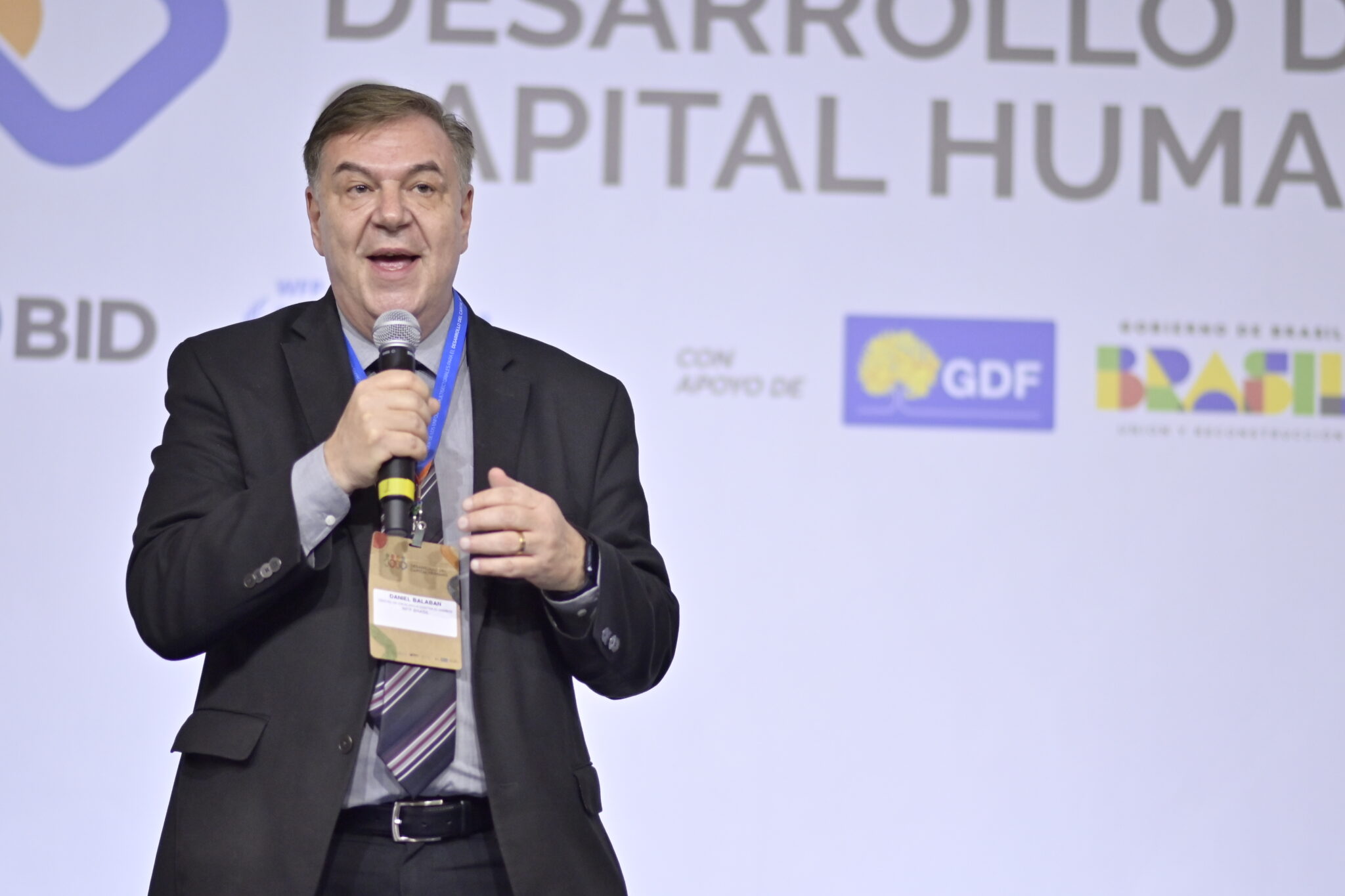
Participation in events
Experts from the Centre of Excellence also participated in dozens of events to share knowledge on promoting food security, nutrition, family farming, and other topics. Some examples of these events were: the South-South Panel of the Global Development Initiative (GDI) at the University of Toronto; the II International Seminar on Good Practices on School Feeding of the Community of Portuguese Speaking Countries (CPLP), in Luanda; 3rd edition of the National Supply Chain Forum of the Brazilian Supermarkets Association (ABRAS); and the XII Brazilian Congress of Agroecology.
Other important meetings took place throughout the year, such as the presentation of the work of the Centre of Excellence to the President of Timor-Leste, meetings with the new president of the National Fund for Education Development (FNDE), with the Minister of Development and Development and Social Assistance, Family and Fight against Hunger (MDS), with the Ministry of Agrarian Development (MDA), with the resident coordinator of the UN System in Brazil, Silvia Rucks, and with the president of the National Supply Company (Conab).
The Centre of Excellence also celebrated the return of the National Council for Food Security (Consea) and began to participate in the national meetings as an observing member and congratulated the government for the readjustment in the per capita values of school meals in the country. In addition, experts from the firm participated in the XX Latin American Congress of Nutrition, of the Latin American Society of Nutrition.




